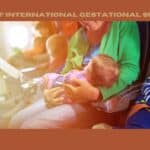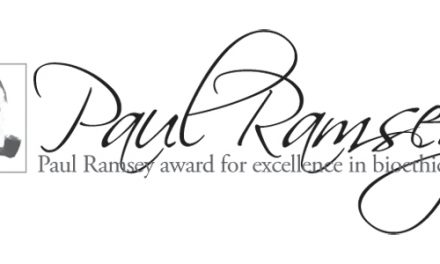Researchers have learned how to dampen gene expression of the extra 21st chromosome, which is the cause of Down syndrome. To date, there are no therapies to cure or treat Down syndrome.
Last year, when I was at the Meeting in Rimini Italy, I visited the Jerome Lejeune Foundation exhibit. In July of 1958, Lejeune, a pediatrician and researcher, was studying chromosomes linked to Down syndrome, where he discovered an ‘extra’ chromosome on the 21st pair. In 1964, his discovery earned him the honor of being named the first Professor of Fundamental Genetics at the Faculty of Medicine of Paris. Lejeune would welcome the news of this breakthrough as a possible way to treat children born with Down syndrome.
Real medical breakthroughs are needed for people struggling with disease, genetic or otherwise. Lejeune never imagined his breakthrough, the discovery of this extra chromosome, would lead to today’s “therapies,” which are nothing more than what I call search-and-destroy tactics.
Amniocentesis, chorionic villi sampling, and pre-implantation genetic diagnosis (PGD) are methods of detecting, not treating, Down syndrome. Sadly, in the majority of cases, the child’s life is ended once the diagnosis is made.
Lejeune’s vision for his research was to develop treatments (people with Down syndrome often have myriad medical problems) to improve lives, not end them.
Hopefully this latest news will bring us closer to Lejeune’s vision of providing hope for those living with this diagnosis.
Author Profile

- Jennifer Lahl, MA, BSN, RN, is founder and president of The Center for Bioethics and Culture Network. Lahl couples her 25 years of experience as a pediatric critical care nurse, a hospital administrator, and a senior-level nursing manager with a deep passion to speak for those who have no voice. Lahl’s writings have appeared in various publications including Cambridge University Press, the San Francisco Chronicle, the Dallas Morning News, and the American Journal of Bioethics. As a field expert, she is routinely interviewed on radio and television including ABC, CBS, PBS, and NPR. She is also called upon to speak alongside lawmakers and members of the scientific community, even being invited to speak to members of the European Parliament in Brussels to address issues of egg trafficking; she has three times addressed the United Nations during the Commission on the Status of Women on egg and womb trafficking.
Latest entries
 BioethicsMay 16, 2024The Ethics of Transplantation Medicine
BioethicsMay 16, 2024The Ethics of Transplantation Medicine infertilityApril 23, 2024The Rise of International Gestational Surrogacy in the U.S.
infertilityApril 23, 2024The Rise of International Gestational Surrogacy in the U.S. Assisted Reproductive TechnologyApril 16, 2024Founder Jennifer Lahl’s Speech on Surrogacy to the Casablanca Declaration
Assisted Reproductive TechnologyApril 16, 2024Founder Jennifer Lahl’s Speech on Surrogacy to the Casablanca Declaration #BigFertilityFebruary 27, 2024No, Alabama Didn’t Ban IVF
#BigFertilityFebruary 27, 2024No, Alabama Didn’t Ban IVF


